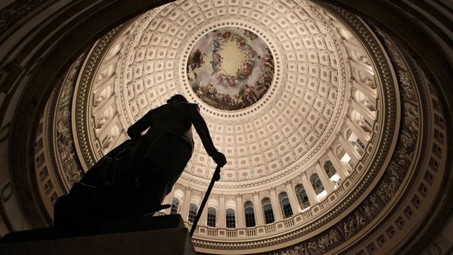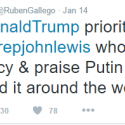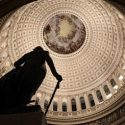Time for Congress to come clean and tell you what its budget proposals really cost
Sen. Steve Daines,
Can you imagine sitting around the dinner table considering purchasing a car or a new home, but not factoring in the cost of the interest on the loan? Yet, this is what Congress does with its legislative budget estimates – one more example of why Washington is broken.
To restore the public’s trust and improve the budget process, Congress must adopt policies that require accuracy in the budget process.
When the Congressional Budget Act of 1974 was passed, it did not require budgetary estimates for legislative proposals to account for projected interest costs on borrowed amounts, which add to the national debt. This gimmick has caused budgetary estimates to not reflect the true cost of legislation, allowing a void of integrity in the budget process.
With a lackluster economic recovery over the last eight years, the federal government has been spoiled by low interest rates used to finance deficit spending. As global markets have been shaken by recent events— including negative interest rates in Japan and Switzerland and China’s declining growth and anxiety over the veracity of their economic data—international funds have flooded the U.S. bond market, pushing 10-year Treasury yields as low as 1.36 percent.
But a low U.S. federal funds rate is likely to change and, with it, financing costs to taxpayers. In fact, according to the Congressional Budget Office (CBO), the federal government’s net interest cost is expected to more than double from 1.4 percent of GDP in 2016 to 3.0 percent of GDP by 2026, more than double as a share of the economy. The CBO projected in August 2016 that by 2023, net interest costs would nearly eclipse defense spending at 2016 levels.
The effect of interest costs on legislative proposals is expected to increase in the coming months and years. This week the Federal Reserve took its first step towards normalizing monetary policy by lifting its interest rate by a quarter point. And it stands to reason interest rate increases will only accelerate due to higher inflation as consumers lift the economy in anticipation of President-Elect Trump’s pro-growth policies, a departure from the norm over the last eight years.

Last week, Gallup released its U.S. Economic Confidence Index, showing enthusiasm at a nine year high. Even prior to November’s election results, CBO projected 10-year Treasury notes to nearly double from 2.2 percent to 4.1 percent by 2026, with many experts expecting three additional increases in 2017 alone.
Bringing integrity to the federal budget process by requiring budgetary estimates to include interest costs associated with legislative proposals is a necessary step to both provide the public and Congress accurate information and eliminate a gimmick that hides federal deficit spending until it is realized on the taxpayer’s balance sheet.
If Congress is going to put the country into deeper debt, it owes taxpayers the right to know how much its legislative proposals will actually cost. To do anything else is a breach of trust.
Senator Steve Daines represents the state of Montana in the U.S. Senate. Before being elected to Congress, Daines worked for 28 years in the private sector. Daines serves on the U.S. Senate Committee on Appropriations.






